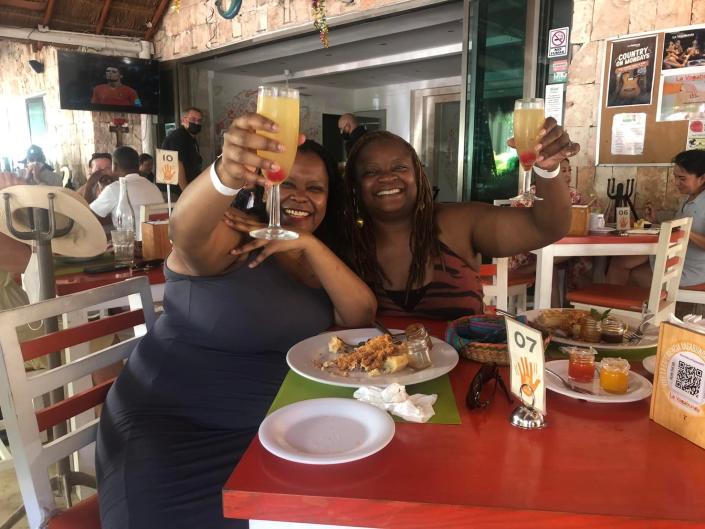We’ve all asked ourselves: Is the grass really greener on the other side?
The expatriation of Black Americans to other countries has largely been reported as a response to racism in the U.S. However, K. Sunnei Samasa, leader of Black Americans Living Abroad, has seen members leave the U.S. for quality of life, job opportunities, entrepreneurial dreams, and more affordable health care.
“Those who decide to move long term rarely do so because of one issue,” Samasa says.
Evita Robinson, the founder of the Nomadness Travel Tribe, agrees. Her network of Black travelers boasts 20,000 members who’ve visited regions all over the world – 19% of the community have also chosen to expatriate.
“Tribe members,” made up largely of Black women, have expatriated “because they want to live out loud … right now,” Robinson says.
Kiwi Bold is such a woman.
“I was in and out of Playa del Carmen (Mexico) for years,” Bold says. “There was a huge House music party here every year so I’d hop on the plane with the rest of Atlanta.”
Eight years ago, Bold decided that her yearly excursions to Mexico could be more than a few days of dancing.
In her forties at the time and have had successful careers as a professional dancer and personal chef, she began to think about how she wanted to spend her fifties, how far she wanted her money to go, how much she still wanted to dance regularly and live a comfortable, etc. She wanted a simpler life.
Bold has called Playa del Carmen home ever since. At 56, she’s also extensively traveled the Yucatán Peninsula, living in the small town of Chicxulub Pueblo (not far from Mérida).
“I was the only Black American my neighbors ever met,” Bold said between chuckles.

Bold chose Mexico because she was fascinated with its rich, complex history. It was always her intent to live in the local community. So, she set up home in Colosio, a neighborhood where she is one of few foreigners for at least 20 blocks.
“I wanted to be a part of the culture. To have a community,” she said.
Bold has contributed to the Colosio community by teaching the kids and their parents English. A single woman, her Mexican aunties, and nieces look out for her. If leaving for the night or taking a trip, Bold lets them know where she’s going and when she’s expected to return. They come knocking on her door the moment she’s supposed to be on the other side of it.
Source: USA Today





